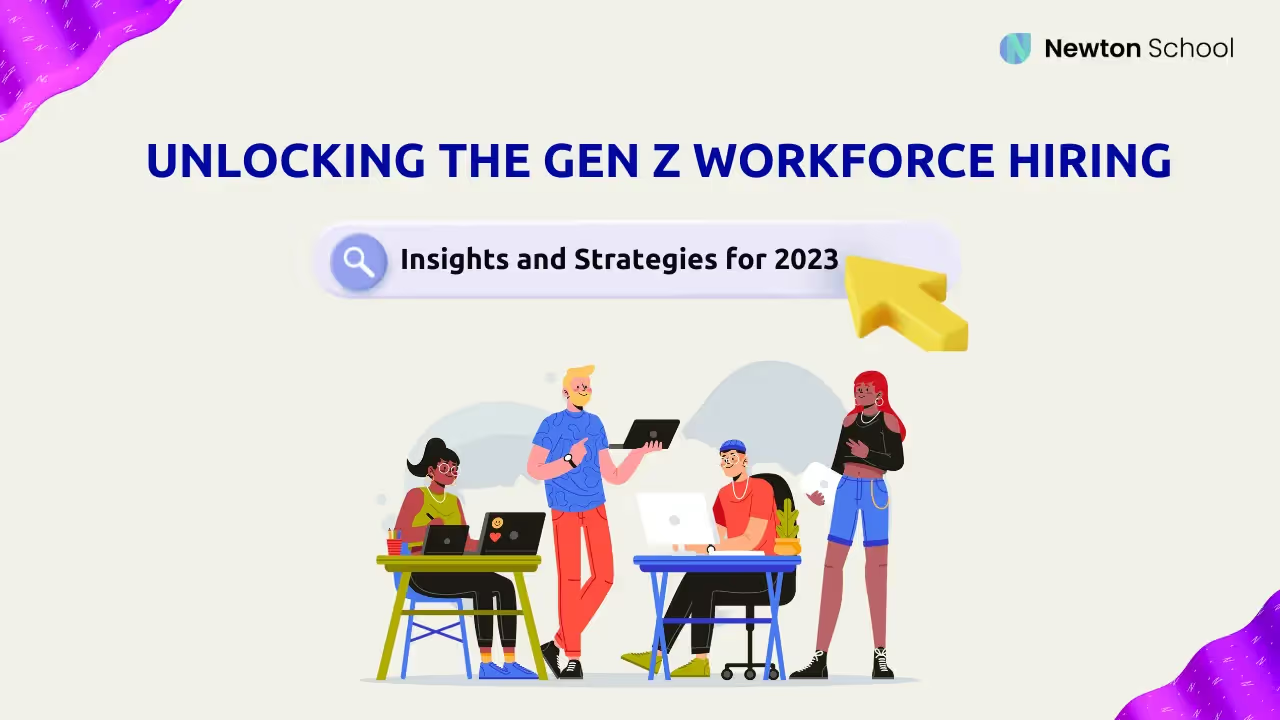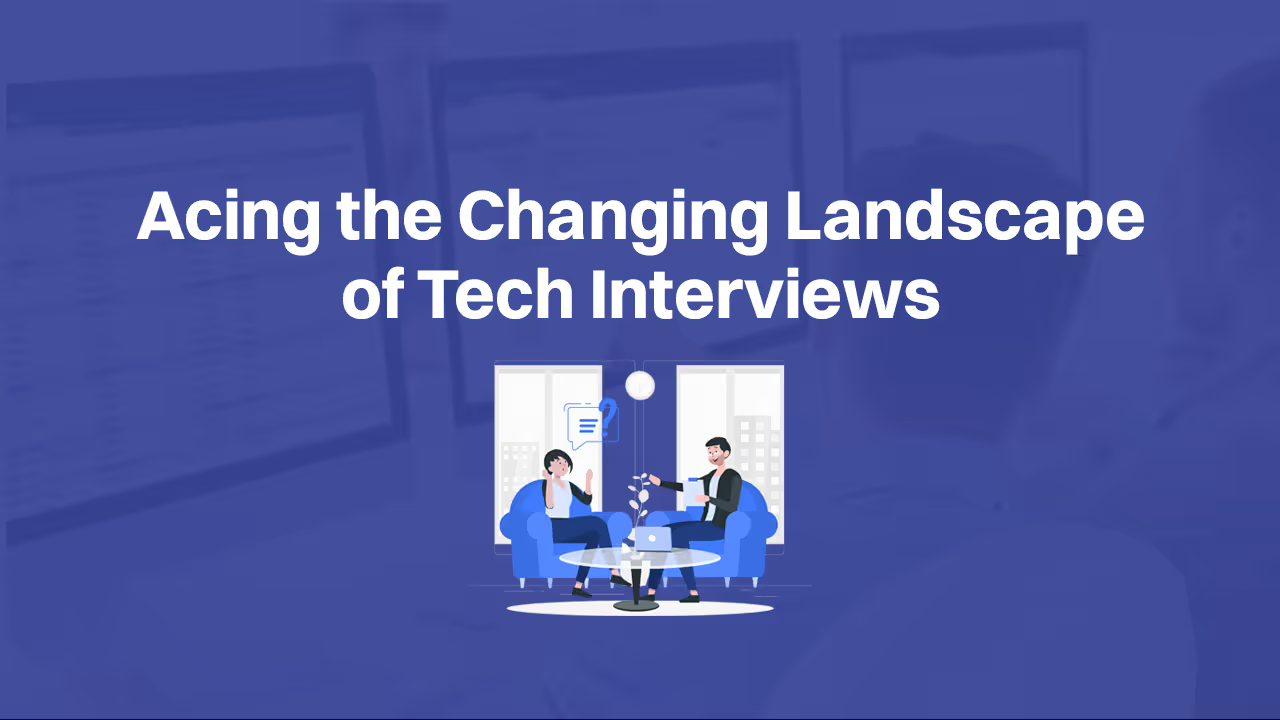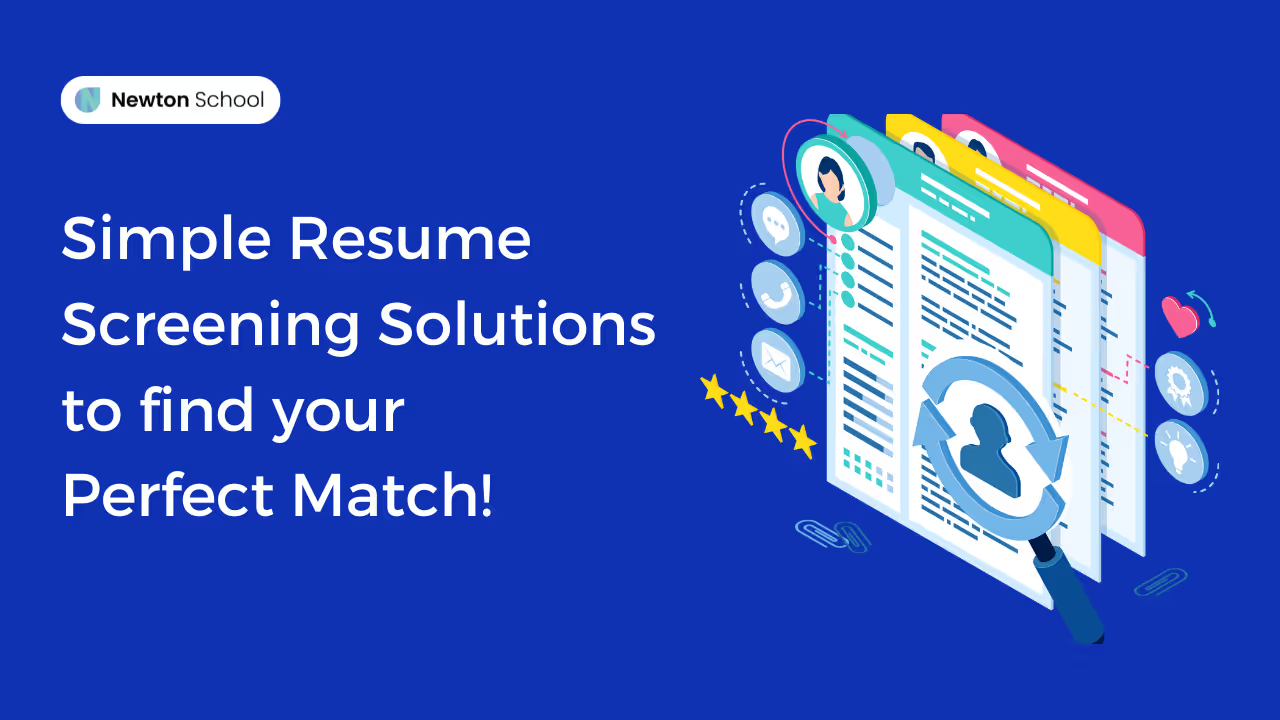
According to a study, resume screening is a time-consuming and challenging task, especially for tech jobs. It can take up to a day to screen resumes for a single hire. This is because job openings typically receive an average of 100-200 resumes on a daily basis, out of which the majority are unqualified or not relevant according to the job posting.
As a result, hiring managers in the tech industry, find it hard to screen resumes a daunting task, given the complex and evolving nature of technical roles.
Deep dive into the article to get a comprehensive understanding of how to identify the best candidates efficiently and effectively.
4 Tips For An Effective Screening:
1. Role Clarity:
The first step is to create a clear and concise job description that outlines the essential skills and experience required for the role. This will help you focus your screening efforts on the most relevant candidates.
2. Keyword Focus:
When you're screening resumes, it's helpful to use keywords that are relevant to the job description. This will help you quickly identify candidates who have the skills and experience you're looking for. Pay attention to the specific skills and experience that are listed. For example, if the job description requires experience with a particular programming language, make sure the candidate has listed that language on their resume.
3. Technical Proficiency:
Evaluate technical skills in programming languages, tools, and technologies. Review GitHub and personal projects for coding style and commitment.
4. Soft Skills Matter:
While technical skills are important, soft skills are also essential for success in tech roles. Look for candidates who have strong communication, problem-solving, and teamwork skills.
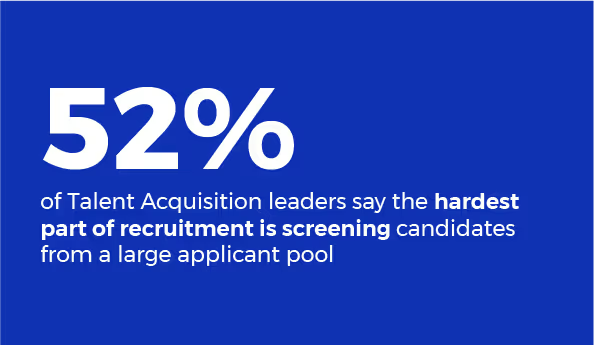
Utilizing AI in recruiting:
In the next few years, finding top talent will be increasingly dependent on recruiters' ability to intelligently automate their workflow and uncover insights into their talent pool.
AI for recruiting is a new category of HR technology that aims to automate time-consuming and repetitive tasks, such as manually screening resumes. This can further help them focus on more strategic and value-added activities, such as building relationships with candidates and making hiring decisions.
1. Saving time with automation:
Talent acquisition leaders expect more hires, but not more recruiters. To handle this, recruiters must work smarter. Screening resumes take up the most time, especially when many are unqualified. Using AI tools to automate this, along with assessments and interview scheduling would definitely help save time and prevent top candidates from going to faster competitors.
2. Quality of hire:
AI has the power to elevate hire quality by using data to align candidates' experience, knowledge, and skills with job requirements in a standardized way.
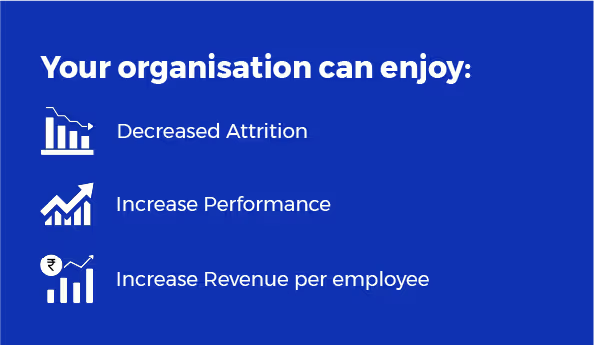
Resume screening is an essential part of the hiring process, but it can be a time-consuming and challenging task. By following the tips in this article, hiring managers can screen tech resumes effectively and identify the most qualified candidates for their open positions.
In addition to the tips mentioned in this article, hiring managers can also use artificial intelligence (AI) to automate the resume screening process. AI can help to identify candidates who meet the job requirements, as well as those who have the potential to be successful in the role.
By using AI and the tips in this article, hiring managers can streamline the resume screening process and find the best candidates for their open positions more quickly and efficiently.

Do you know at Newton School, our students ace it with industry-lead mentorship, 50+ hours of soft skills training and preparation through mock interviews with 960+ hours of code?
If you're on the hunt for young and talented tech professionals, whether for software development or data science roles, Newton School has a pool of ready-to-join candidates. And the best part? Hiring from us won't cost you a dime.
Interested? Give us a call at 9606907486 or explore more at Newton School.

.avif)
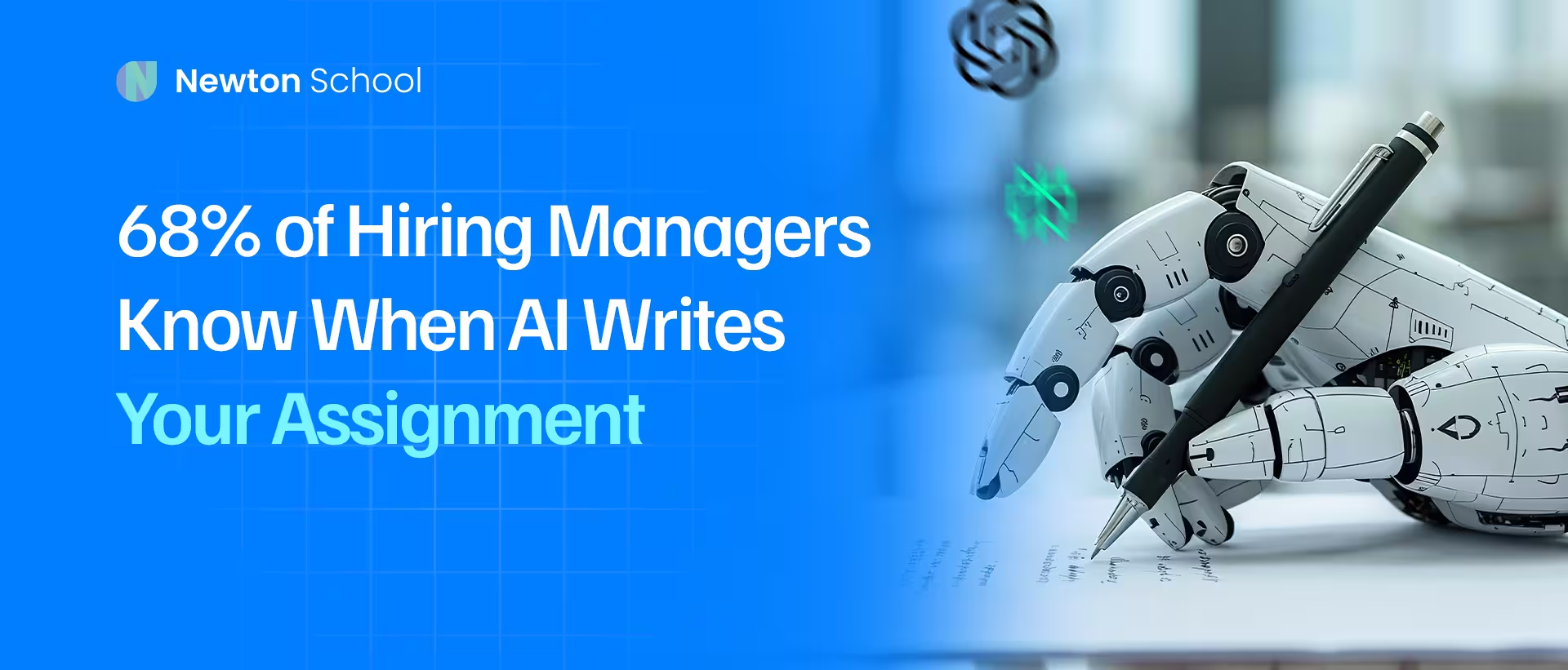

.avif)
